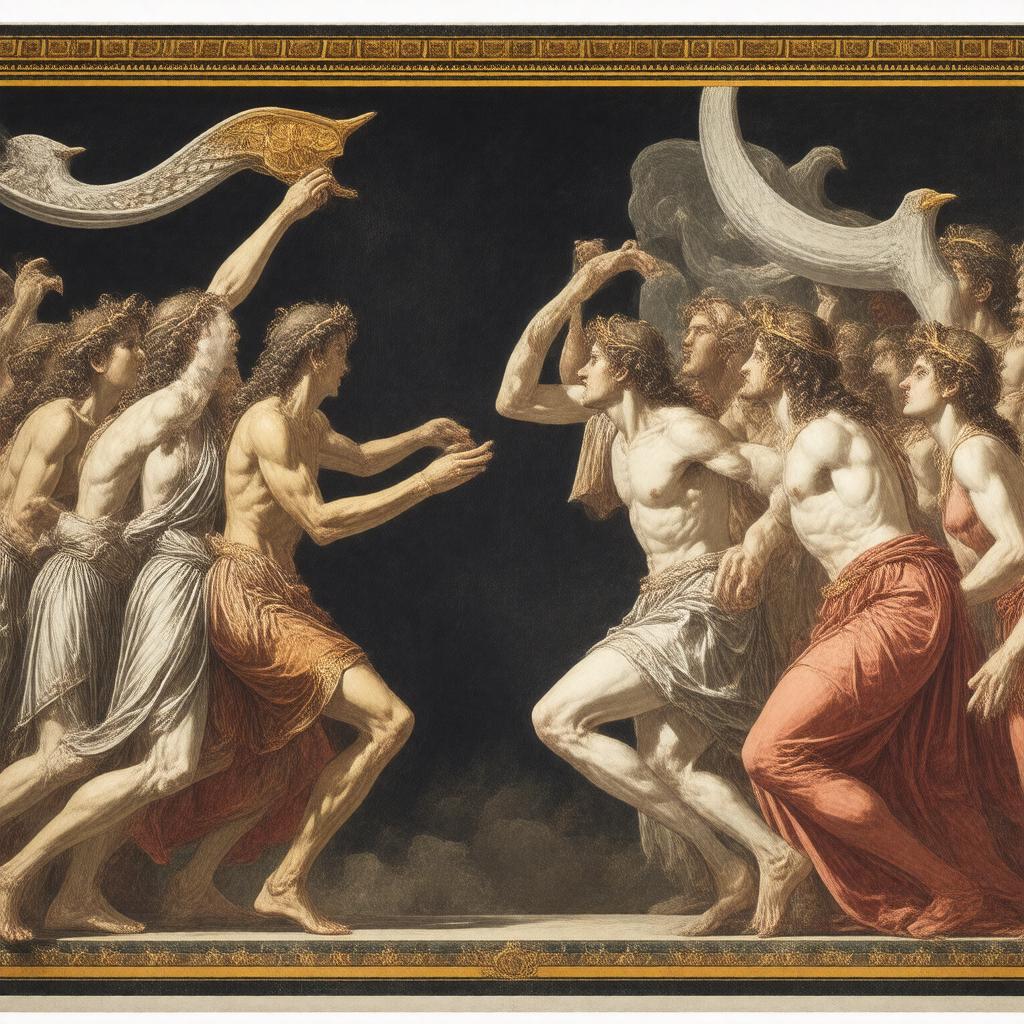
AI-created image
Statements (30)
| Predicate | Object |
|---|---|
| gptkbp:instanceOf |
gptkb:play
|
| gptkbp:adaptation |
gptkb:film
gptkb:novel gptkb:opera |
| gptkbp:author |
Euripides
|
| gptkbp:explores |
conflict between rationality and instinct
power of the gods over mortals |
| gptkbp:features |
chorus of Bacchae (Maenads)
|
| gptkbp:firstPerformed |
405 BC
|
| gptkbp:genre |
gptkb:tragedy
|
| gptkbp:influenced |
gptkb:psychological_theory
modern theatre |
| gptkbp:language |
gptkb:Ancient_Greek
|
| gptkbp:mainCharacter |
gptkb:Agave
gptkb:Dionysus gptkb:Pentheus |
| gptkbp:partOf |
Euripides' late plays
|
| gptkbp:publishedIn |
gptkb:Ancient_Athens
|
| gptkbp:setting |
gptkb:Thebes
|
| gptkbp:survivesIn |
complete text
|
| gptkbp:theme |
gptkb:identity
madness authority divine vengeance |
| gptkbp:won |
first prize at the City Dionysia (posthumously)
|
| gptkbp:bfsParent |
gptkb:Sir_Peter_Hall
gptkb:Semele gptkb:Tiresias |
| gptkbp:bfsLayer |
5
|
| http://www.w3.org/2000/01/rdf-schema#label |
The Bacchae
|